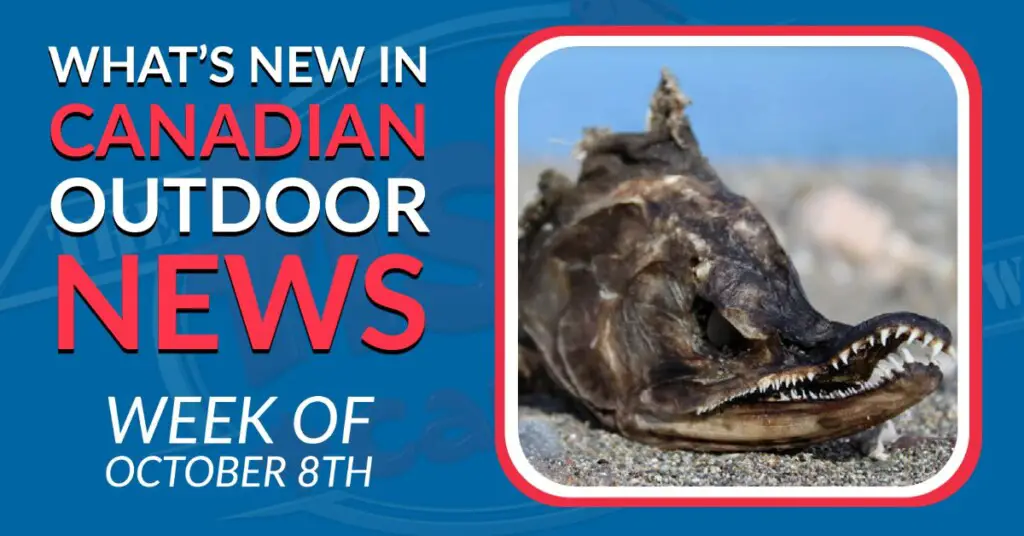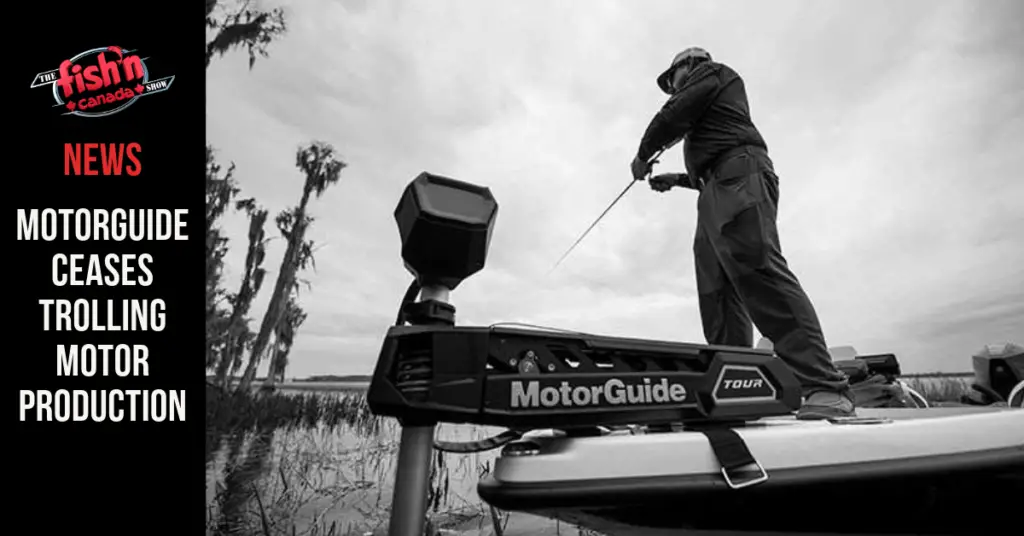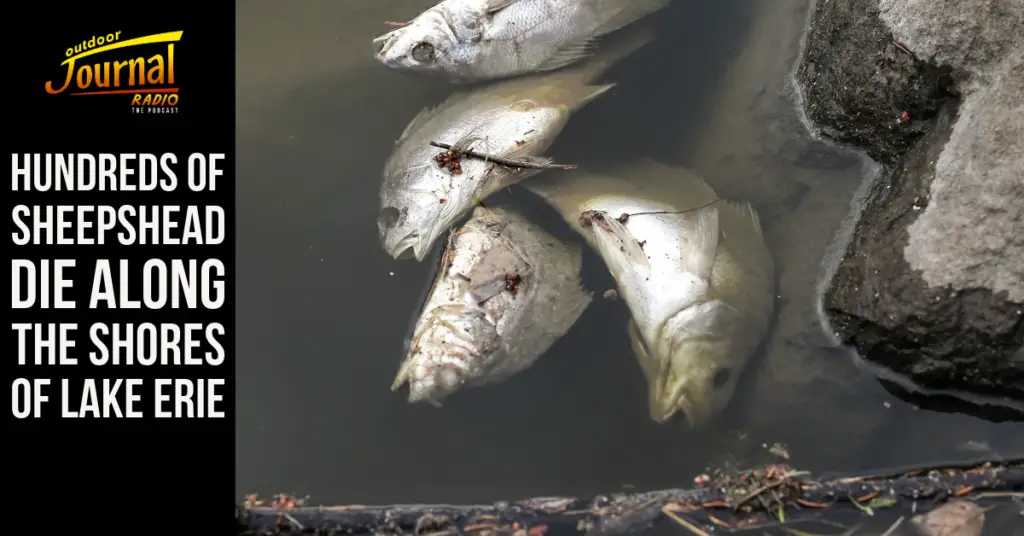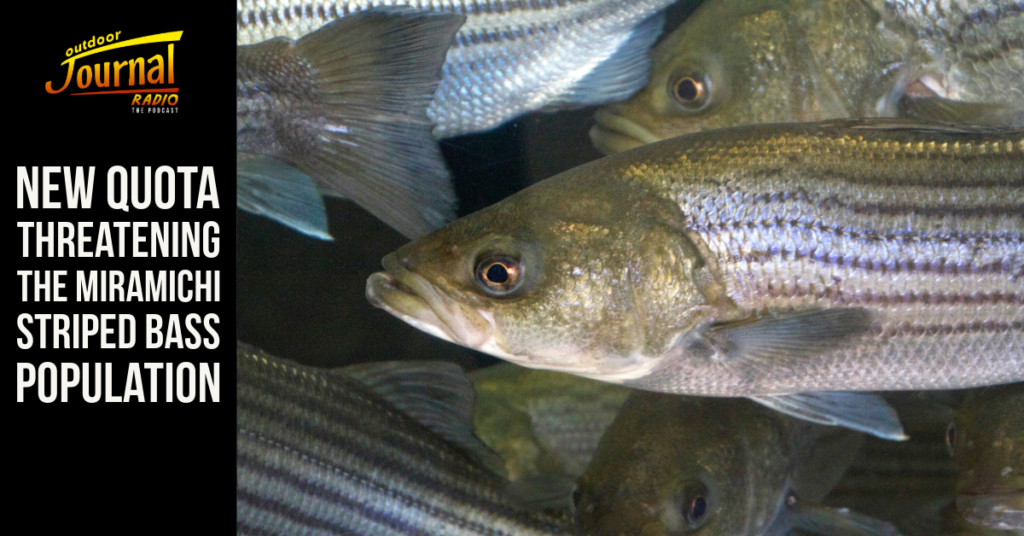The Stories that Matter and the Fuel to your Bar Banter – Canadian Hunting and Fishing News from the Week of October 8th, 2021
Although news has never been so abundant, finding relevant and reliable stories has never been more difficult. Thankfully, Fish’n Canada has you covered. From white moose to stranded salmon, here is everything you missed this week in the world of Canadian hunting and fishing!
1- Last year’s white moose controversy reignites after shooting is deemed legal
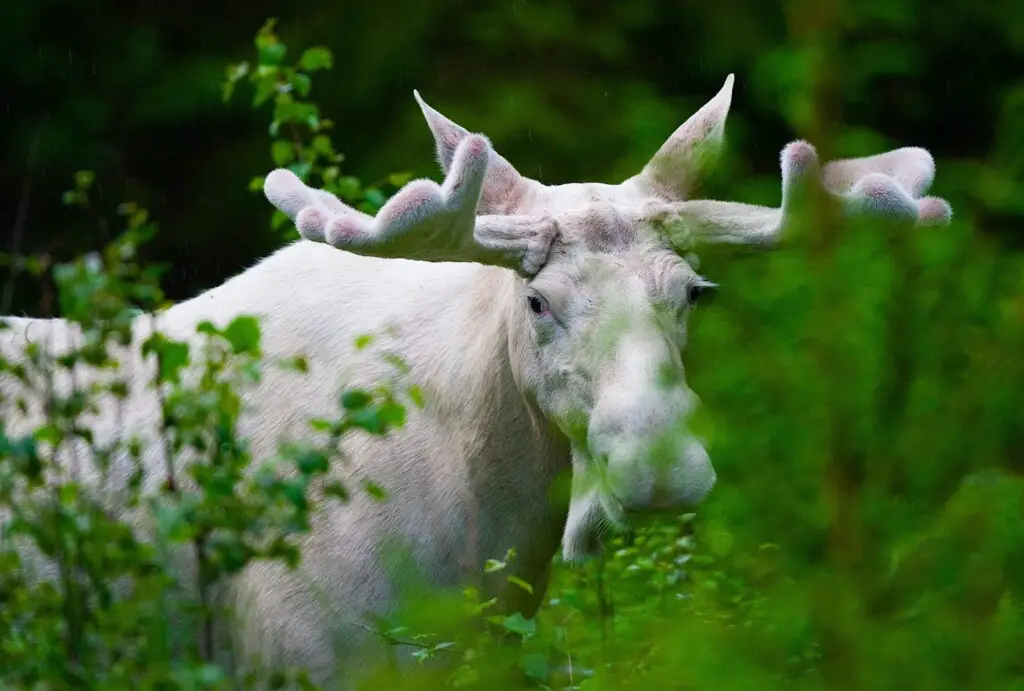
The highly-publicized white moose controversy from last fall made its return to the headlines this week when the shooting of the animal was officially deemed legal.
For those unfamiliar with the story, the controversy began last November when the head of a white moose was found just north of Timmins, Ontario, an area that, since 2006, has banned the killing of animals displaying the rare pigment. Though they are not technically a separate species from the brown variety many are used to seeing, the law was created in respect to local First Nations communities who value the animal as having great spiritual significance, often representing a returning ancestor.
As would be expected, the finding of the rare moose head quickly sparked outrage online and activists from Timmins to Toronto to Vancouver temporarily dedicated themselves to finding the perpetrator, even starting a GoFundMe account that raised upwards of $5,200.
Fortunately, just under a year later, the culprit has been identified. Unfortunately, the result was not quite what those petitioning had hoped for. Last week, the Ontario Ministry officially deemed the harvesting of the white moose legal, stating that:
“The Ministry of Northern Development, Mines, Natural Resources and Forestry did not lay charges because the investigation determined the moose was harvested lawfully by an individual who was exercising their harvesting rights – within their recognized traditional territory,”
Via the Daily Hive
For those who are confused by the wording, this means that the individual who harvested the thought-to-be off-limits moose was a member of the local First Nations community and hunted the animal within their traditional territory – negating all charges that would have otherwise been laid.
2 – Pink Salmon spotted southwest of Iqaluit
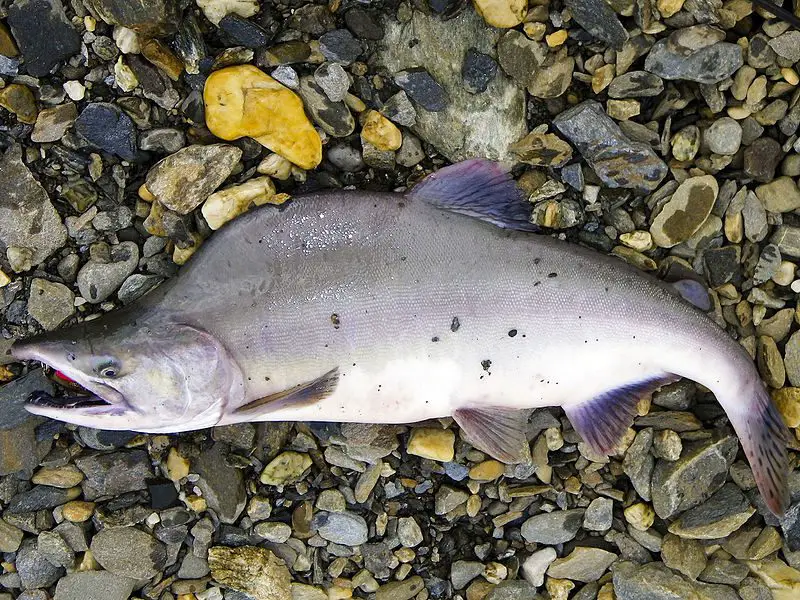
Another story revolving around rare animal sightings, a Pink Salmon has been spotted just 65km south of Iqaluit, Nunavut – thousands of kilometres north of its typical home range.
Pink Salmon are common along Canada’s west coast and, through stocking, are now found in the eastern waters of the Great Lakes, Quebec, Labrador, and Nova Scotia. Never before, however, have they been found as north as Nunavut.
In an interview with Nunatisaq News, fisheries biologist, Karen Dunmall, states that “pink salmon normally prefer warmer waters than the Arctic has been able to provide. But with the Arctic warming at up to three times the rate of the rest of the world, its waters are becoming more approachable for newcomers like this species.”
However, although the waters may be warm enough for these fish to survive towards the end of the summer, the temperatures these fish need to spawn will soon disappear, making a sustainable arctic population of Pink Salmon highly unlikely any time soon.
3 – BC woman fined after feeding bears with bulk groceries

In what seems like a weekly segment here at the Fish’n Canada Week in Review, our third story revolves around another case of humans feeding wild animals.
Last week, Whistler resident Zuzana Stevivoka was sentenced in Provincial Court and fined $60,000 under B.C’s Wildlife Act for repeatedly feeding wild black bears. According to authorities, Stevivoka had been caught purchasing 15 cartons of eggs, 10 cases of apples, and over 50 pounds of carrots on a weekly basis – all for feeding local bears.
Although these insane purchasing habits may cause some to view Zuzana as a hero, it is important to emphasize that feeding wild animals never ends well for the animal. In this particular case, all the bears that were frequenting the area were forced to be put down as, thanks to the constant feeding, they had become conditioned and relient on humans for food. While this may seem harsh, allowing these conditioned animals to remain can have deadly consequences for humans, as seen just a few weeks ago with the coyotes of Stanley Park.
4 – Ontario rolls out new baitfish regulations
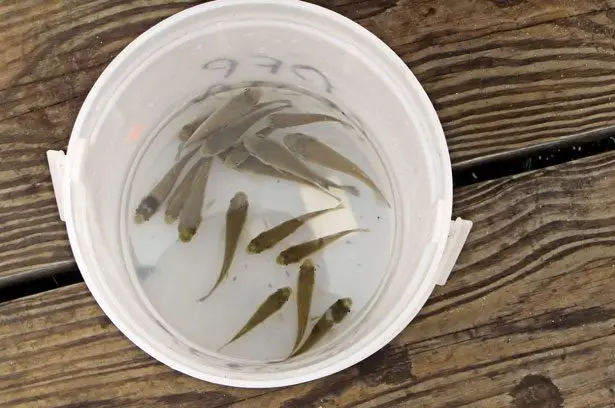
As mentioned in yesterday’s article, Ontario is soon to see some changes in its baitfish regulations.
Starting in January, Ontario will be launching a plan to stop the spread of invasive species, as well as prominent baitfish diseases such as Viral Hemorrhagic Septicemia (VHS) that have the potential to devastate local fish populations. The plan will divide Ontario into four Baitfish Management Zones (BMZs), regulating the transport of bait across boundary lines and enforcing strict penalties to those who violate the new system.
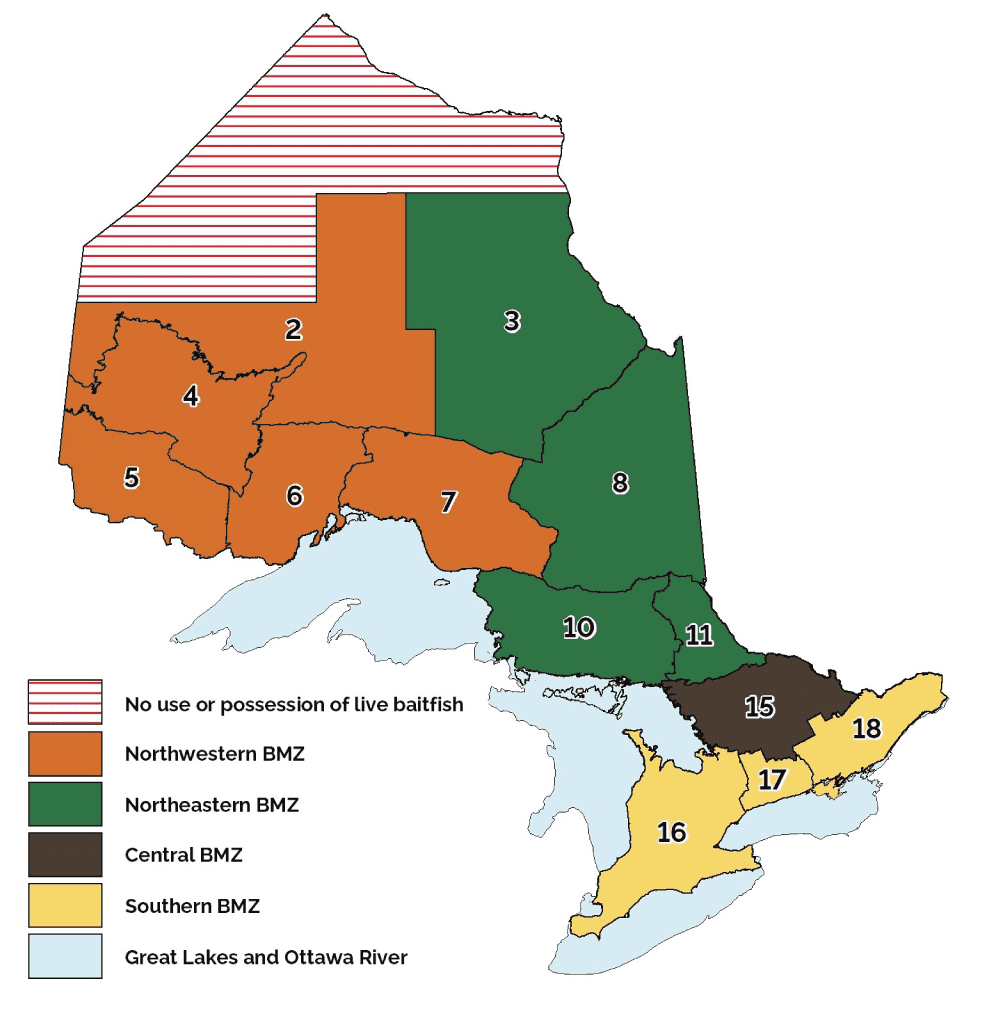
As you can see on the map above, not much will change for those fishing locally. However, those travelling to fish should now make plans to buy bait nearby the lakes they are fishing and to always keep receipts to prove where the bait was purchased. If you have bait leftover after travelling outside your area, the bait and receipt can be used for an additional two weeks, as long as you are fishing in the same BMZ.
5 – Thousands of salmon stranded on Cheakamus River – fingers point to BC Hydro
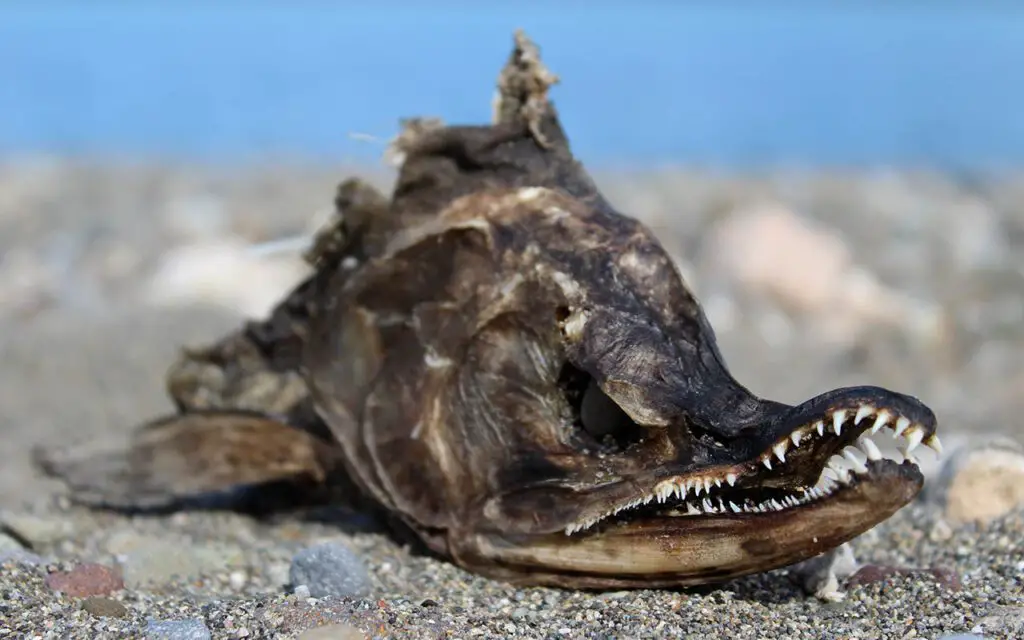
Our last story of the week takes us back to BC where thousands of Pink Salmon have been found stranded along the shores of the Cheakamus River.
Dead salmon are soon to be common along the banks of rivers throughout the country, however, these premature deaths had nothing to do with spawning and, seemingly, everything to do with mismanagement. Though the exact cause of the kill has not been confirmed as of yet, flow rates in the river, controlled by BC Hydro, are likely the cause.
On the days leading up to the kill, BC Hydro confirms that they were increasing flow rates in the river, an action that sparked a large migration of salmon into the river to stage along the banks. After a rainstorm moved into the area, however, the outflow from the reservoir was reduced in an attempt to account for the rain. In what turned out to be a massive miscalculation, this reduction rapidly lowered the river’s water levels, giving fish no time to adjust and stranding thousands of salmon on the now-dry riverbed.
The number of salmon that were lost in the event has not yet been made public, but BC Hydro has now committed to improving ramp downs to avoid something like this reoccurring in the future.
Have a story we missed? Send us an email at [email protected]



